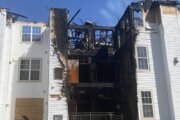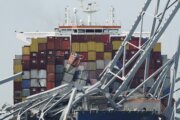TERRY COLLINS
Associated Press
SAN FRANCISCO (AP) — San Francisco’s famed cable cars stopped running Monday and the rest of the city transit system experienced delays when drivers called in sick a few days after overwhelmingly rejecting a new labor contract, officials said.
The San Francisco Municipal Transportation Agency operated without two-thirds of the vehicles that would normally be used to provide service, spokesman Paul Rose said.
The agency known as MUNI runs buses, light rail and street cars in addition to the cable cars, and serves about 700,000 passengers each day. Its 2,200 operators represented by Transport Workers Union Local 250-A rejected the contract by a 1,198 to 42 vote Friday, according to totals on the union’s website.
The workers are not allowed to go on strike, but they can call in sick. Rose said he did not know how many employees had done so.
Transit officials said those who reported sick must provide “adequate verification from their health care provider” to get sick pay and could be subject to discipline.
According to the San Francisco Chronicle, Alicia John-Baptiste, the transit agency’s chief of staff, wrote Monday in a memo to staff: “Operators claiming to be sick today, or in connection with any future ‘sickout,’ will be required to submit adequate verification from their health care provider in order to be eligible to receive paid sick leave.”
Monday’s surprise slowdown led to long lines as most trains and buses running were at capacity.
“We’re doing our best to balance service throughout the city and provide service on every route and line, but at this point there will be delays,” Rose said.
On Monday, a fare inspector at the start of cable car lines at Powell and Market streets broke the bad news to dozens of tourists who had planned to ride the historic conveyances.
“We’re very disappointed,” said Willfrid Strauss, 56, who was visiting San Francisco with his new wife, Corinne, from France. The two were married in Las Vegas on Friday.
“We’re only here in San Francisco for three days, so this is one of the highlights of our trip,” he said.
City residents trying to get to work in the morning faced crowded light-rail trains and delays of up to an hour on buses.
“It was jam packed, super crowded and slightly slower,” architect Steve Weiss said as he left a light-rail train at Powell Street near Union Square.
All express buses were serving every stop, the transportation agency said. The Bay Area Rapid Transit Agency, which serves an area that includes the city, was honoring tickets on city transportation all day from the Daly City and Balboa Park stations to downtown San Francisco, Rose said.
The contract that MUNI workers rejected Friday would have given them a raise of more than 11 percent over two years. However, it also would have required them to cover a 7.5 percent pension payment currently paid by the transit agency, Rose said.
The contract would have increased operator pay to $32 an hour, making them the second highest-paid transit workers in the country, Rose said.
Union President Eric Williams called the proposal unfair and said in a statement on the union’s website that the city had proposed unreasonable takeaways in wages and benefits.
Calls and emails to union officials Monday were not immediately returned.
Just before Monday evening’s commute, Mayor Ed Lee tweeted that the sickout hurts the city’s workers and families.
“Transit workers must get back to work and reach labor agreement to keep SF moving,” Lee said.
Copyright 2014 The Associated Press. All rights reserved. This material may not be published, broadcast, rewritten or redistributed.







